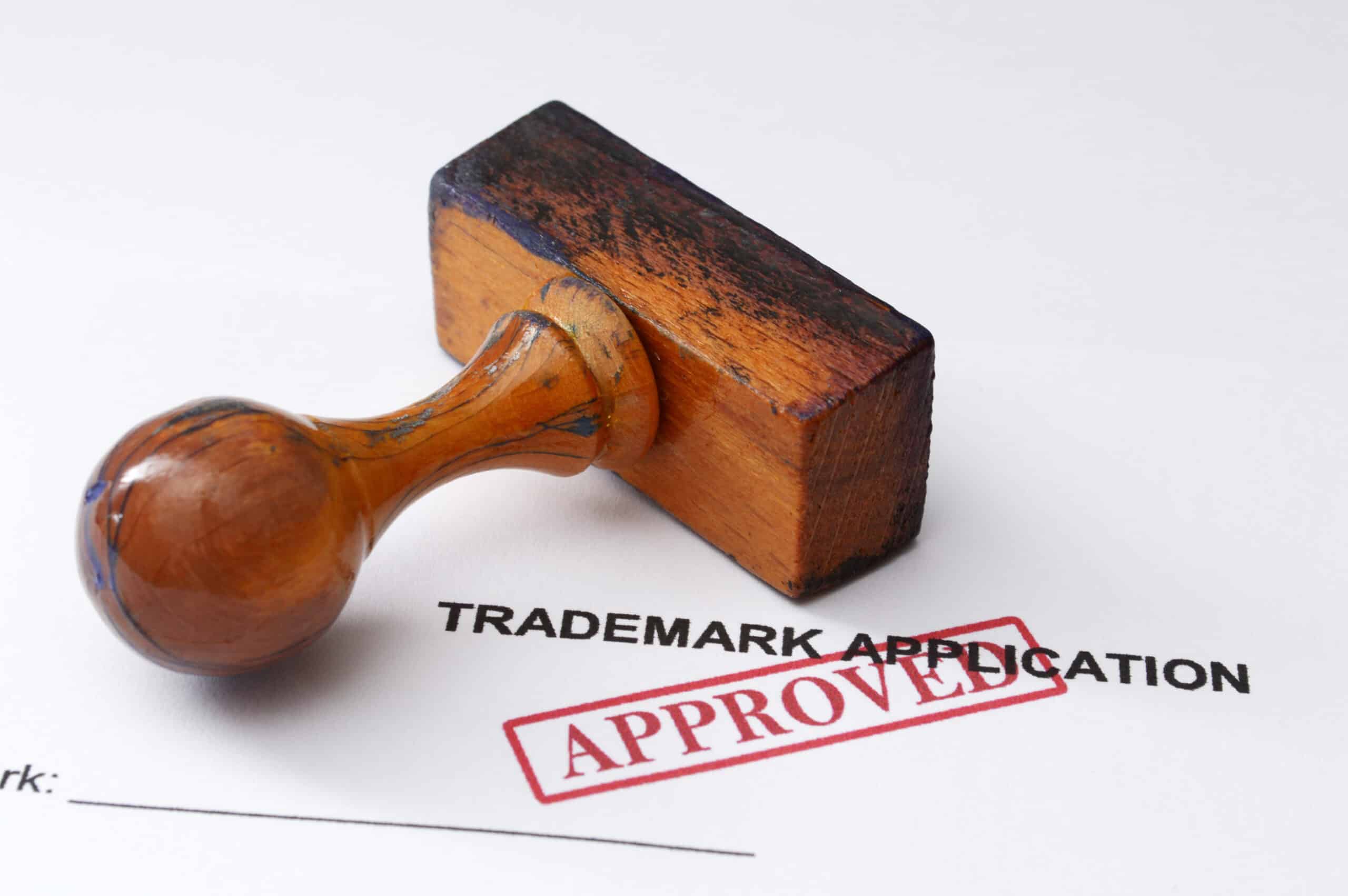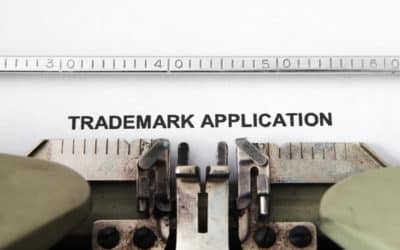Verna Law, P.C. is a premier, boutique law firm with a unique focus on Intellectual Property: Trademarks, Patents, Copyrights, Advertising, and Media Law. Anthony M. Verna III, Managing Partner of Verna Law, P.C., has been admitted to New Jersey since 2004 and practices in all federal courts of New Jersey.
Our Team has over 60 years Combined Experience
Your Business and Brand Are Our Priority
Verna Law, P.C. represents business of all sizes. Trademark Law is all about protecting the exclusive rights in brands that any business creates. These brands can be the business name, a product name, product lines, advertising slogans, taglines, colors, packaging, and even sounds.
Trademark Law in New Jersey
Trademark Applications
We offer cost-effective trademark applications with a comprehensive search to give you the proper advice. After doing a comprehensive trademark search, the team at Verna Law, P.C. can apply for your trademark at the United States Patent and Trademark Office until it registered. A trademark owner can save time, expense, and effort by adopting an inherently distinctive mark and ensuring it is registered on the Principal Register with the United States Patent and Trademark Office. Trademark registration is essential for acquiring strong legal rights, being able to efficiently enforce one’s trademark rights, and deterring others from infringing on your legal rights. If a trademark owner decides not to register its mark, and wants to enforce its rights, this becomes challenging. This challenge will also be encountered if a trademark is only registered on the Supplemental Register of the Trademark Office and not the Principal Register. The reasons why a trademark owner can benefit from registration are due to the presumptions that attach under the Lanham Act, specifically Sections 7(b) and 7(c) (15 U.S.C. §1057). Verna Law, P.C. also has experience at the Trademark Trial and Appeal Board should the need to oppose or cancel any other trademarks. Learn More
Trademark Litigation
Our team has over 60 years of combined legal experience in litigation. Anthony Verna, Managing Partner of Verna Law, P.C., is admitted to all courts in the District of New Jersey in order to represent you in federal trademark infringement matters. Should there be a likelihood of confusion with another trademark, Verna Law, P.C. can handle being a plaintiff or a defendant in any trademark law matter in federal court in New Jersey. Our cases have ranged helping business owners protect their own intellectual property rights to defending business owners from overly aggressive plaintiffs. A company’s trademarks are its brand identity and should others be using that identity, a valuable asset can be harmed. Learn More
Trademark FAQ
Do you have questions about trademarks? What is a common law trademark? What extra rights does a registered trademark have? What is a service mark registration? What are the legal requirements to register a trademark? How do you respond to an Office Action? What are descriptive marks? What does it mean to have a distinct mark? What does it mean to have a fanciful trademark? How does interstate commerce affect trademarks? Learn More
Our Team

Anthony M. Verna III
Managing Partner
Anthony has his Juris Doctor degree from Rutgers University School of Law and a member of both the New York and New Jersey Bars, as well as the U.S. District Court for New Jersey and the U.S. District Court for the Southern District of New York. He is a sought-after business speaker and has built Verna Law, P.C. to have a strong focus on Patent, Trademark, Copyright, Domain Names, Entertainment, and Advertising law, providing Intellectual Property services for modern businesses who want to promote and protect themselves and stand out in this market. Anthony is an intellectual property attorney who has worked on patent protection, trademark applications, design patents, trade secrets, unfair competition, patent law litigation, trademark law litigation, and copyright law litigation. Anthony has over 20 years of legal experience and has worked on various types of patents for various industries, including toys, medical devices, consumer products, and pharmaceutics, and international patents. Outside of law, Anthony likes drinking a Montepulciano d’Abruzzo (his family is from the region), his first concert was Tori Amos, and he plays tuba and guitar. Learn more about Anthony here.

Wil Jacques
Patent Agent
With over 25 years of experience in engineering, manufacturing, sales, strategic marketing, and technology licensing for government, industrial, and private sector organizations and clients, Wil is a patent valuation and licensing expert. He is registered at the United States Patent and Trademark Office as a patent agent and works on patent applications throughout the patent process including office actions. Wil is the lead in protecting patent rights at Verna Law, P.C., including drafting a provisional patent applications, utility patents, patent claims, and patent application preparation. His focus is on assisting early-stage companies in attracting capital investments and out-licensing opportunities with larger, more established market players including government, venture capital firms, and medium to large-size corporations. Wil is an avid golfer.
Learn more about Wil here.

Judy Endejan
Litigation Consultant
Judy focuses on telecommunications, media, and intellectual property issues. With a unique blend of private practice and in-house experience, Judy spent ten years with GTE Corporation (now Verizon), acquiring substantial experience in public utility regulation and administrative law. She has also served as General Counsel for Fisher Communications, Inc., a major Northwest broadcast corporation.
Judy is licensed in Washington and California and has over 40 years of legal experience. Outside of law, Judy likes a good champagne, her first concert was The Beatles, she has two corgis named Sadie and Cosmo, and her first job after college was as a reporter at the Milwaukee Journal.
Learn more about Judy here.
New Jersey Trademark Matters
If your business is not protecting any of these aspects of its business, then your business is leaving value not counted for and not calculated. We can perform a thorough trademark search to find potential confusing marks. The federal trademark registration process is fraught with pitfalls and mistakes can derail trademark protection under federal law. If a trademark owner has a federal registration on the Principal Register, the trademark owner doesn’t need to prove its proprietary rights if involved in litigation in court or before the Trademark Trial and Appeal Board (“TTAB” or the “Board”). In other words, if you only have common law rights or a mark on the Supplemental Register, you will need to spend time and resources to first prove you have proprietary rights in the trademark before attempting to enforce your rights in an infringement action on the federal level or under a claim for likelihood of confusion of a similar mark at the Trademark Trial and Appeal Board.
For an example of the complex process that is filing a trademark application, a refusal to register based upon a likelihood of confusion is difficult to overcome. Receiving an Office Action that refuses your trademark application due to a 2(d) Likelihood of Confusion Refusal can be daunting. To effectively respond, it’s essential to grasp some key principles. If the marks are legally or virtually identical, a lesser degree of similarity between the goods or services will suffice to find a likelihood of confusion. Similarly, if the goods or services overlap or are identical, a lesser degree of similarity between the marks is necessary. Even if only one good or service overlaps, confusion is likely for the entire class. The Board presumes the same distribution channels and consumer classes for overlapping or identical goods and services. When the relatedness of goods and services is not obvious, additional evidence is required beyond mere coexistence. Examining Attorneys rely on the identifications in the application or registration to compare goods, services, and trade channels, and precise language is needed to restrict their scope.
Evidence of relatedness may include news articles, advertisements, or third-party registrations showing that the goods or services are marketed together. The subject application and cited registration can serve as evidence of relatedness. Whether additions or deletions to marks significantly change the commercial impression depends on whether the shared terms are descriptive or diluted. Lastly, evidence of similar third-party marks can demonstrate a mark’s weakness and justify narrow protection. Understanding these principles can help craft effective responses to likelihood of confusion refusals.
Verna Law, P.C. explains these issues to its clients.
Is someone in New Jersey using your trademark? Verna Law, P.C. can explain litigation to its clients. To prove trademark infringement under the Lanham Act, a plaintiff must establish three key elements: a valid and legally protectable mark, ownership of the mark, and a likelihood of confusion. For registered marks, ownership is generally straightforward, while unregistered marks require proof of distinctiveness in the marketplace. Ownership can be shown through registration or by demonstrating common law rights via prior use in commerce. The likelihood of confusion is assessed through factors like similarity of marks, relatedness of goods/services, strength of the mark, evidence of actual confusion, marketing channels, defendant’s intent, and consumer care.
To prove use, the plaintiff must show the defendant used the mark in a way that violates the Lanham Act, impacting interstate commerce. Defenses against infringement claims include equitable defenses (laches, estoppel, unclean hands), fair use, and collateral use. Remedies for infringement can include injunctive relief, damages, attorney’s fees, and litigation costs. Notable legal standards and cases, such as the Polaroid factors and the A&H Sportswear, Inc. v. Victoria’s Secret Stores, Inc. case, highlight the complexities in assessing likelihood of confusion. Trademark infringement cases are typically heard in federal court, though state courts may handle cases involving unregistered or common law trademarks.
TTAB Decision on Concurrent Use Registration in New Jersey in Boi Na Braza LLC v. Terra Sul Corporation
The 2014 TTAB precedent involves concurrent use registration, allowing two unrelated trademark owners to coexist with legally identical trademarks in distinct geographic areas. Concurrent use decisions by the TTAB are rare and even fewer are precedential, making Boi Na Braza LLC v. Terra Sul Corporation, Concurrent Use No. 94002525 (March 26, 2014), particularly significant.
In 2002, Boi Na Braza Inc. (“Plaintiff”) registered two marks for the term BOI NA BRAZA (one word mark and one design mark) for restaurant services. Terra Sul Corporation (“Defendant”) petitioned to cancel the word mark for BOI NA BRAZA based on the priority of its mark BOI NA BRASA for restaurant services. The Board granted the cancellation petition. Subsequently, Plaintiff initiated a concurrent use proceeding for a geographically restricted registration.
Concurrent use proceedings are governed by Section 2(d) of the Trademark Act, 15 U.S.C. §1052. The issuance of concurrent registrations requires two conditions: (1) the parties must be entitled to concurrent use of the marks in commerce, and (2) there must be no likelihood of confusion, mistake, or deception as to the source of the goods or services in the marketplace. Additionally, the Plaintiff’s use must have commenced before the filing date of the Defendant’s trademark application.
The first requirement necessitates that one adopts the trademark in good faith, without knowledge of a prior user in another geographical area, and there must be a level of public recognition. The Plaintiff met this condition. The second requirement is the absence of a likelihood of confusion if a geographic restriction is applied to the registration. The Board examines how long the parties coexisted without actual confusion. Here, there had been 15 years of coexistence without confusion, favoring concurrent use. Furthermore, for restaurant services, confusion can often be avoided with geographic restrictions due to their localized nature.
The Board determined the geographic scope of each registration, following the rule that a prior user is entitled to trademark rights in the entire U.S. except in the area of actual use by the subsequent user if no likelihood of confusion exists. This presumption can be overcome if the prior user remains static while the subsequent user filed first for registration. Key factors considered include previous business activity, expansion or lack thereof, dominance of contiguous areas, planned expansion, and possible market penetration.
Ultimately, the Board granted nationwide rights to the Plaintiff, the first to file for registration and the party to expand, but the subsequent user of the trademark. The Defendant’s rights were geographically restricted to New York and New Jersey. The Defendant, first to use the mark but only in New Jersey, did not expand outside of New Jersey over 18 years. New York was included in the Defendant’s territory as it was within its zone of natural expansion.
Concurrent use registration proceedings are rare due to their expense and time consumption. It is practical to resolve such disputes during the Office Action phase of trademark prosecution by entering into a voluntary agreement to restrict use to certain geographic areas, which can be submitted to the Examining Attorney along with persuasive arguments to proceed with the application.
Contact Us for a Free Consultation
Recent News
What Are the Remedies for Patent Infringement?
What Are the Remedies for Patent Infringement? Patent Infringement Remedies: Protecting Intellectual Property Rights in the Modern EraIn the complex world of intellectual property law, patent infringement remains a significant concern for inventors, businesses, and...
What is a Divisional Patent Application?
Understanding Divisional Patent Applications: A Comprehensive Guide In the complex world of intellectual property, divisional patent applications play a crucial role in protecting multiple inventions disclosed in a single patent application. This comprehensive guide...
Trademark Trial and Appeal Board
Trademark Trial and Appeal Board In the world of intellectual property, trademark protection is vital for safeguarding the distinctive signs, logos, and names that distinguish goods or services. Within this landscape, the Trademark Trial and Appeal Board (TTAB) plays...







